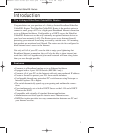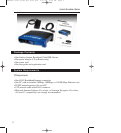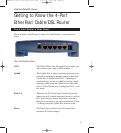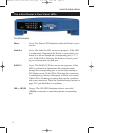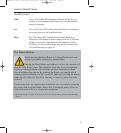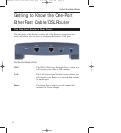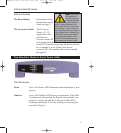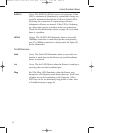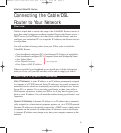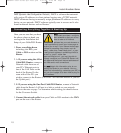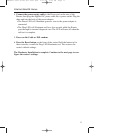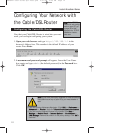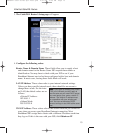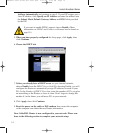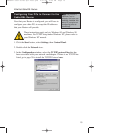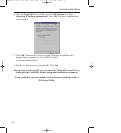
EtherFast Cable/DSL Routers
9
Connecting the Cable/DSL
Router to Your Network
Overview
Unlike a simple hub or switch, the setup of the Cable/DSL Router consists of
more than simply plugging everything together. Because the Router acts as a
DHCP server, you will have to set some values within the Router, and also
configure your networked PCs to accept the IP Addresses the Router chooses
to assign them.
You will need the following values from your ISP in order to install the
Cable/DSL Router:
• Your broadband-configured PC’s fixed Internet IP Address (if applicable)
• Your broadband-configured PC’s Computer Name and Workgroup Name
• Your Subnet Mask
• Your Default Gateway
• Your Primary DNS IP address
Whoever installed your broadband access should have left this information
with you. If not, call your ISP and they will be able to supply you with it.
About Static & Dynamic IP Addresses
Static IP Addresses A static IP address is an IP address permanently assigned
to computer in a TCP/IP network. Static IP addresses are usually assigned to
networked devices which are consistently accessed by multiple users, such as
Server PCs, or printers. If you are using your Router to share your cable or
DSL Internet connection, contact your ISP to see if they have assigned your
home a static IP address. You will need that address during your Router’s con-
figuration.
Dynamic IP Addresses A dynamic IP address is an IP address that is automati-
cally assigned to a client station (computer, printer, etc.) in a TCP/IP network.
Dynamic IP addresses are typically assigned by a DHCP server, which can be
a computer on the network or another piece of hardware, such as the Router.
A dynamic IP address may change every time your computer connects to the
network.
}
Only if applicable
BEFSR41 User Guide Apr 2000.qxd 4/27/00 3:20 PM Page 9



